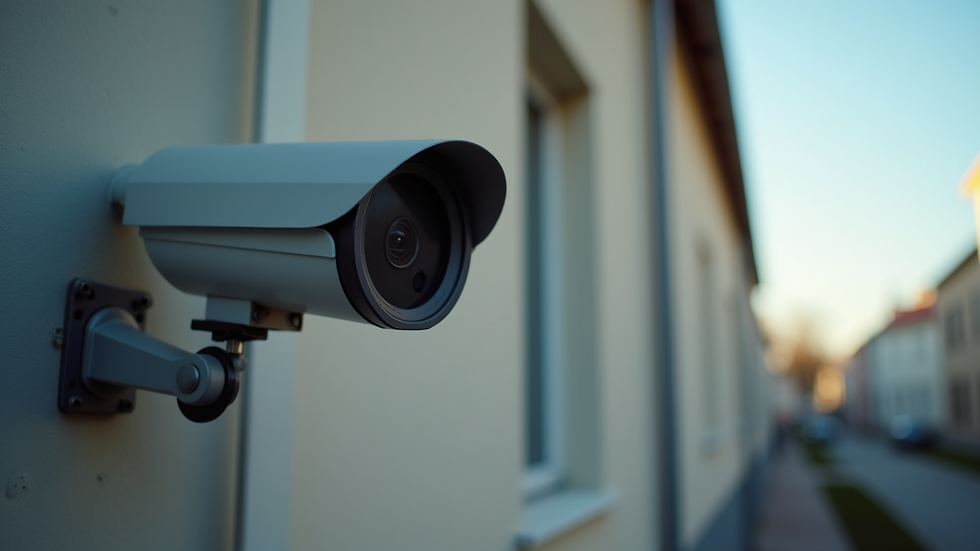Steps to Building a Secure and Protected Environment
- David Pate
- Oct 13, 2025
- 4 min read
Creating a secure and protected environment is essential for safeguarding your home or business from potential threats. Whether you are concerned about burglary, fire, or other emergencies, taking proactive steps can significantly reduce risks and provide peace of mind. This guide will walk you through practical and effective measures to build a safe space that protects your loved ones, assets, and information.
Understanding the Importance of a Protected Environment
A protected environment is more than just locking doors and windows. It involves a comprehensive approach that includes physical security, technology, and awareness. By establishing a secure environment, you minimize vulnerabilities and create a deterrent against intruders and hazards.
For example, installing strong locks and reinforced doors can prevent unauthorized entry. Additionally, having smoke detectors and fire extinguishers in place can save lives in case of fire. A well-planned security system integrates these elements to provide layered protection.
Key components of a protected environment include:
Physical barriers such as fences, gates, and locks
Surveillance systems like cameras and alarms
Emergency preparedness tools and plans
Regular maintenance and security audits

Essential Steps to Create a Protected Environment
Building a secure environment requires a step-by-step approach. Here are the essential actions you can take:
1. Assess Your Security Needs
Start by evaluating the specific risks your property faces. Consider factors such as location, neighborhood crime rates, and the value of your possessions. This assessment will help you prioritize security measures.
2. Install Quality Locks and Barriers
Use high-quality deadbolts, window locks, and security doors. Reinforce entry points with metal frames or security bars if necessary. Don’t forget to secure garages and sheds as well.
3. Implement a Surveillance System
Cameras and motion detectors act as both deterrents and tools for evidence collection. Choose systems with remote monitoring capabilities so you can keep an eye on your property from anywhere.
4. Use Alarm Systems
An alarm system alerts you and authorities in case of unauthorized access or emergencies. Modern systems often include features like fire and carbon monoxide detection.
5. Establish Emergency Protocols
Prepare for emergencies by creating evacuation plans, installing smoke detectors, and keeping fire extinguishers accessible. Regularly practice drills with family or employees.
6. Maintain Your Security Measures
Regularly check and update your security devices. Replace batteries, test alarms, and repair any damage promptly to ensure continuous protection.

Which is better, ADT or Guardian?
When choosing a security provider, two popular options often come up: ADT and Guardian. Both companies offer comprehensive security solutions, but there are differences worth considering.
ADT is a well-established brand with a wide range of services, including home automation, video surveillance, and professional monitoring. They have a large customer base and extensive experience.
Guardian, on the other hand, is known for its personalized customer service and flexible plans. Their systems are easy to install and integrate well with smart home devices.
Here are some factors to help you decide:
Pricing: Guardian often provides more affordable packages with no long-term contracts.
Customer Service: Guardian has a reputation for responsive support, while ADT’s service can vary by region.
Technology: Both offer modern technology, but ADT has a broader selection of devices.
Monitoring: Both provide 24/7 professional monitoring, but Guardian’s monitoring centers are praised for quick response times.
Ultimately, the best choice depends on your specific needs and budget. Research both companies thoroughly and consider reading customer reviews.

Integrating Technology for Enhanced Protection
Technology plays a crucial role in modern security. Smart devices allow you to monitor and control your environment remotely, adding convenience and safety.
Examples of technology integration include:
Smart Locks: Control access to your property via smartphone apps.
Video Doorbells: See and communicate with visitors without opening the door.
Motion Sensors: Detect movement and trigger alarms or lights.
Environmental Sensors: Monitor for smoke, carbon monoxide, or water leaks.
Using these technologies together creates a network of protection that can alert you instantly to any issues. Many systems can be customized to fit your lifestyle and security preferences.
Partnering with Professionals for Optimal Security
While DIY security measures are helpful, professional services can elevate your protection. Companies like guardian protection services offer expert installation, monitoring, and support.
Professional security providers can:
Conduct thorough security assessments
Recommend tailored solutions
Provide 24/7 monitoring and rapid emergency response
Maintain and update your system regularly
Investing in professional services ensures your security system is reliable and effective, giving you confidence in your protected environment.
Building a Culture of Security Awareness
Security is not just about devices and barriers; it also involves people. Educate everyone in your home or workplace about security best practices.
Tips for fostering security awareness:
Encourage locking doors and windows consistently
Teach how to use security systems properly
Promote vigilance for suspicious activity
Establish clear communication channels for reporting concerns
A security-conscious environment reduces risks and helps everyone contribute to safety.
By following these steps, you can create a secure and protected environment that safeguards your property and loved ones. Combining physical security, technology, professional support, and awareness builds a strong defense against potential threats. Start today to enjoy the peace of mind that comes with true protection.









Comments